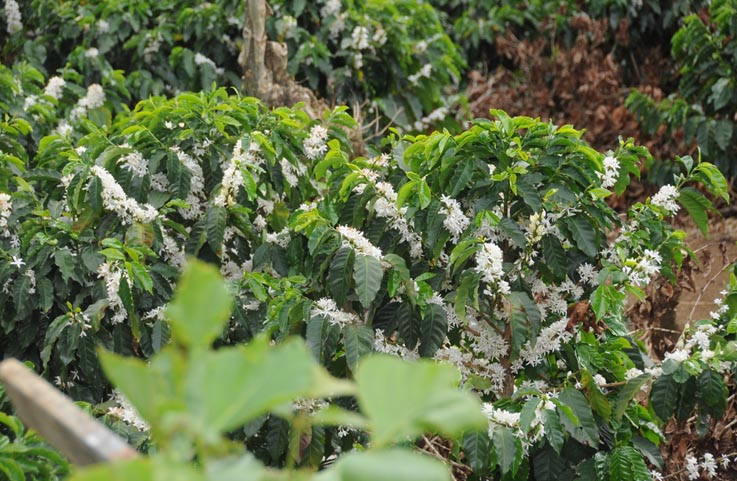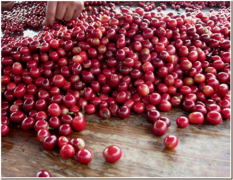What are the characteristics of Kenyan AA coffee and how to extract the best acid from Kenya?
For professional baristas, please follow the coffee workshop (Wechat official account cafe_style)

Product name: Karimiku processing plant Karimikui Factory
Country: Kenya Kenya
Producing area: Kirinyaga, Holy Mountain, Kenya
Grade: AA
Treatment method: washing treatment method Washed Process
Variety: SL28 & SL34
Altitude: 1700-1800 m
Flavor: citrus, black plum, good acidity, sweet sucrose
The Karimiku processing Plant (Karimikui Factory) belongs to the Rungeto Co-operative Society, which is located in the Kirinyaga area of Kenya. The Rungeto Co-operative Society is made up of three processing plants: Karimikui, Kii, and Kiangoi. At the time of its establishment, it inherited most of the assets after the dissolution of the famous local cooperative. Among them, the Kalimiku processing Plant (Karimikui Factory) started operation in 1997. There are about 1400 farmers around, which can produce about 745 tons of fresh coffee fruit each year.
The processing plant is very focused on quality and has quite perfect and strict standards. The nearby Karimicu River (Karimikui River) is used as the main source of water. After carefully screening the ripe coffee fruit, the peel and pulp are then removed and fermented in the sink to remove pectin, and finally washed with clean water and then sun-dried on the African scaffolding. The treatment plant not only treats the production of coffee, but also pays great attention to environmental protection, and even builds its own wastewater treatment system to produce high-quality coffee beans without polluting the environment.
This batch is directly traded by exporters, with rich flavors such as citrus and black plum, very typical Kenyan acidity and, most importantly, sucrose sweetness at the end.
Important Notice :
前街咖啡 FrontStreet Coffee has moved to new addredd:
FrontStreet Coffee Address: 315,Donghua East Road,GuangZhou
Tel:020 38364473
- Prev

Which coffee tastes better, espresso? Introduction to the origin of world-famous coffee beans
For professional baristas, please follow the coffee workshop (Wechat official account cafe_style). Some people see it as a source of morning spirit, others as a comfort in the afternoon. It is coffee, a drink popular all over the world, a classic, a culture, and an attitude towards life. Coffee has become a ubiquitous drink in our lives, and you are interested in it.
- Next

Why drink bitter and astringent coffee?
Exchange of professional baristas Please follow the Coffee Workshop (official Wechat account cafe_style). No matter how busy it is in 1996, I would like to have a cup of coffee with you. At that time, Nestle instant coffee gave us a reason to have leisure in our busy life. In 2011, the unified superstore invited actor Guilun magnesium to shoot a series of advertisements in my cafe, which made us more accustomed to following.
Related
- Detailed explanation of Jadeite planting Land in Panamanian Jadeite Manor introduction to the grading system of Jadeite competitive bidding, Red bid, Green bid and Rose Summer
- Story of Coffee planting in Brenka region of Costa Rica Stonehenge Manor anaerobic heavy honey treatment of flavor mouth
- What's on the barrel of Blue Mountain Coffee beans?
- Can American coffee also pull flowers? How to use hot American style to pull out a good-looking pattern?
- Can you make a cold extract with coffee beans? What is the right proportion for cold-extracted coffee formula?
- Indonesian PWN Gold Mandrine Coffee Origin Features Flavor How to Chong? Mandolin coffee is American.
- A brief introduction to the flavor characteristics of Brazilian yellow bourbon coffee beans
- What is the effect of different water quality on the flavor of cold-extracted coffee? What kind of water is best for brewing coffee?
- Why do you think of Rose Summer whenever you mention Panamanian coffee?
- Introduction to the characteristics of authentic blue mountain coffee bean producing areas? What is the CIB Coffee Authority in Jamaica?

